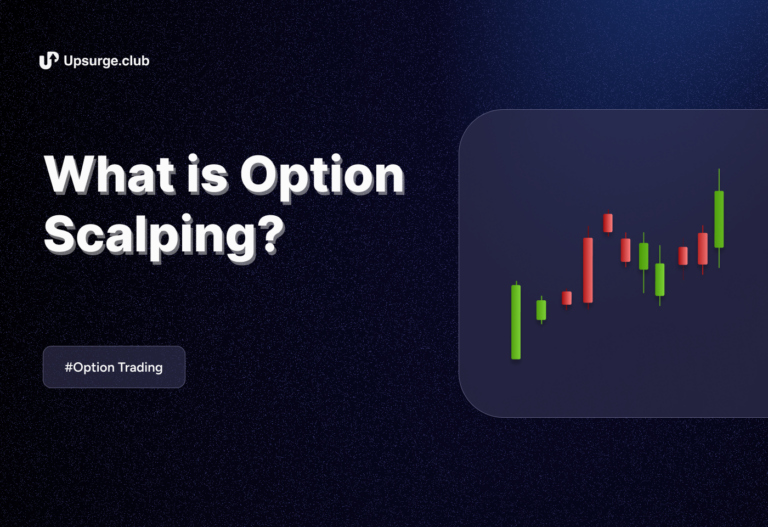If you’re a novice trader, understanding the differences between option trading and stock trading is crucial. Both these instruments offer unique advantages and risks that cater to different trading goals and risk tolerances. To help you understand it better, in this article, we will explore the meaning and key benefits and drawbacks of option trading and stock trading. This will help you make an informed decision about which one aligns better with your trading objectives and preferences.
What is Options Trading?
Options are financial instruments that give you the right to buy a certain stock or asset at a certain price within a certain amount of time. However, you are not obligated to abide by the contract. Over time, options typically lose value, making them known as “wasting assets.” This characteristic underscores the importance of understanding the time element when engaging in options trading. It is better to learn about this derivative instrument via an option trading course, before diving into the market.
There are two types of options commonly traded in the financial markets.
- Call Options: Call options allows you to gain the right to buy the underlying asset at a predetermined price within a specified timeframe. If the asset price increases, the value of your call option also rises.
- Put option: As a seller of put options, your objective is to profit from a decrease in the underlying asset’s price. Put options grant you the right to sell the underlying asset at a predetermined price until a specific date.
Benefits of Options Trading
Options trading offers several benefits to traders. Here are some of the key advantages of engaging in options trading:
- Potential For High Returns: Options trading offers the opportunity for significant profits due to leverage, allowing traders to control a larger position with limited funds.
- Risk Mitigation: Options allow for the implementation of various risk management strategies. For example, buying put options can protect your portfolio from potential downside risk, while selling covered call options can generate income and mitigate potential losses. Options can also be used to hedge existing positions, reducing potential losses and protecting against adverse market movements.
- Diversification: Options trading allows you to diversify your portfolios and gain exposure to different asset classes, sectors, or market indices.
- Potential for Profit in Any Market Direction: Options can be used to profit from upward, downward, or sideways movements in the underlying asset, providing more trading opportunities.
Drawbacks of Option Trading
It’s crucial to understand the drawbacks associated with option trading before diving into this complex financial instrument. Here are some drawbacks to consider when you learn option trading:
- Higher Volatility: Options trading can be highly risky, as the value of options can be volatile and unpredictable.
- Complexity: Options involve complex strategies and calculations, requiring a deep understanding of market dynamics and option pricing models.
- Time-sensitive: Options have expiration dates, which adds an element of time sensitivity to trading. If the options expire out of the money, they can become worthless. Unlike stocks, which can be held indefinitely, options have a limited lifespan, and their value declines over time due to time decay.
- Liquidity Concerns: Not all options have high trading volume, which can impact liquidity. Illiquid options may result in wider bid-ask spreads, making it more difficult to execute trades at desired prices.
What is Stock Trading?
Stock trading refers to the buying and selling of stocks in the financial markets. As an individual, you can participate in stock trading by opening a brokerage account. You have to analyze and monitor stock prices, company performance, and market trends to make informed decisions.
To enhance your understanding and skills, you can consider enrolling in one of the best stock trading courses provided by Upsurge.club. These courses can provide you with valuable insights and strategies for successful stock trading.
Benefits of Stock Trading
Stock trading can provide several benefits. Here are some of the key benefits of stock trading:
- Potential for High Returns: Stock trading offers the opportunity to earn significant profits by trading in stocks of companies that have the potential for substantial growth.
- Diversification: Stock trading allows you to diversify your portfolio by trading in stocks from different industries and companies.
- Opportunity for Wealth Creation: Stock trading offers you the chance to potentially generate significant wealth by trading in profitable companies and benefiting from their growth over time.
- Liquidity: Stocks are highly liquid assets, meaning you can easily buy and sell them on the stock market. This liquidity ensures that you can access your funds relatively quickly when needed, compared to other trading options like real estate.
Drawbacks of Stock Trading
Here are some drawbacks to consider when you learn stock trading:
- Market Risk: There is always a chance of losing your capital, as stock prices can fluctuate significantly and trading can go sour.
- Time-consuming: Successful stock trading requires continuous monitoring of market trends, company news, and financial statements, which can be time-consuming and demanding.
- Expertise required: Achieving consistent profitability in stock trading often necessitates a deep understanding of financial markets, technical analysis, and company fundamentals, which can be challenging to acquire and maintain.
- Market manipulation: Manipulation by large traders or institutions can distort stock prices, making it harder for you to compete on a level playing field.
Which One to Choose: Options Trading vs. Stocks Trading?
The decision between options and stock trading depends on your trading style. Beginners and those who prefer simplicity often choose stocks, while seasoned traders may find options appealing.
Whichever instrument you choose, ensure you have a solid understanding of the same. Here are some factors that can help you understand choosing between options trading and stock trading.
1. Risk Tolerance
Assess your comfort level with risk and volatility. Options trading typically involves higher levels of risk due to leverage and time decay, while stock trading carries its own risks but may be comparatively less volatile.
2. Trading Goals
Determine your objectives, whether it’s capital appreciation, generating income, hedging existing positions, or speculative trading. Different instruments suit different types of goals.
3. Market Knowledge
Evaluate your understanding of derivative and stock markets. Options trading requires a deeper understanding of concepts like strike prices, expiration dates, and option strategies, whereas stock trading focuses on analyzing company fundamentals and market trends.
4. Time Commitment
Options trading often demands more active management and monitoring due to time-sensitive factors like expiration dates. Also, option trading can be undertaken till expiry which can be a few weeks, while stock trading is done on an intraday basis.
5. Capital Availability
Evaluate your available capital. Options trading may require less capital upfront due to leverage, but it also carries the potential for significant losses. Stock trading typically requires more substantial capital but offers a more straightforward and traditional trading approach.
Conclusion
Choosing between options trading and stock trading depends on your personal trading style and preferences. When considering option trading versus stock trading, it’s crucial to assess your goals, risk tolerance, and time commitment.
Remember that each approach has its own advantages and drawbacks. To enhance your understanding and skills in option trading, you can learn these concepts by enrolling on Upsurge.club for its best option trading courses and kickstart your journey.



